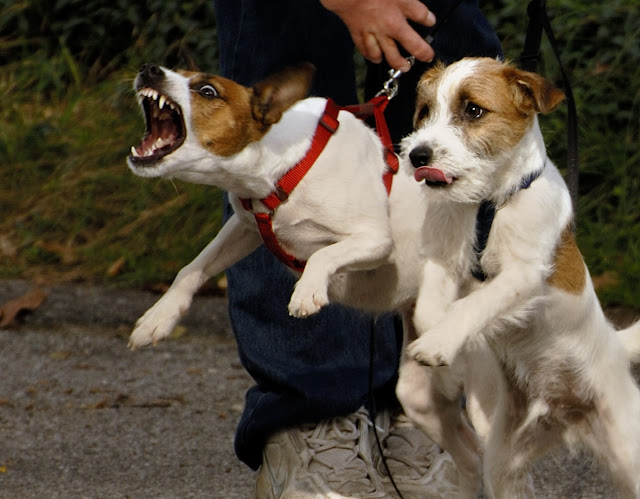Dog Training For Aggressive Dogs Tips That Work
.jpg) |
| dog training for aggressive dogs |
Dog Training Session for Aggressive Dogs in California
When it comes to dog training for aggressive dogs an aggressive dog, there are a few key things to keep in mind. First and foremost is that you need to be consistent with your commands and rewards. If you allow your dog to behave aggressively one day but punish them for the same behavior the next, they will only become more confused and likely to lash out.
Secondly, it's important that you remain calm and assertive when dealing with an aggressive dog. Yelling or using physical punishment will only make the situation worse. Instead, use a firm voice and clear commands to let your dog know you're in charge.
Finally, it's crucial that you provide plenty of positive reinforcement for good behavior. Giving your dog a treat or taking them for a walk after they obey a command can help reinforce the behavior you're trying to encourage.
Are you struggling to train your dog because he is aggressive? Is your dog biting, lunging, and growling at other people or animals? If so, you're not alone. Aggressive dog behavior is one of the most common issues dog owners face. But don't worry, there are ways to train your dog and stop his aggressive behavior. The key is to be consistent, patient, and positive.
Buy Small Dog Bark Collar with Remote
First, you need to understand why your dog is being aggressive. Small dog bark collar with remote there could be many reasons why your dog is acting out, such as fear, dominance aggression, territorial aggression, or food aggression. Once you know the root cause of the problem, you can start working on a solution.
One effective way to train an aggressive dog is through positive reinforcement. This means rewarding your dog for good behavior and positive actions.
Aggression in dogs can be a scary thing for both dog and owner. If your dog is showing signs of aggression, it's important to take steps to correct the behavior as soon as possible. Here are some tips that can help you train your aggressive dog.
1. Start with basic obedience training. A well-trained dog is less likely to become aggressive.
2. Be consistent with your commands and rewards. Dogs thrive on routine and knowing what is expected of them.
3. Provide plenty of exercise and stimulation. A bored dog is often a frustrated dog, which can lead to aggression.
4. Be patient and never use physical punishment when training an aggressive dog. This will only make the problem worse.
5. Seek professional help if necessary. There are many qualified trainers who can help you correct your dog's aggressive behavior.
Shock Collar for Biting Puppy at Affordable Prices
Dogs that are aggressive can be a handful and need special care when it comes to training. Some tips, though, work well with these furry friends. Shock collar for biting puppy first and foremost, establish yourself as the pack leader. This means being consistent with rules and limits, and never letting your dog walk all over you. Be firm but fair in your training methods- using positive reinforcement like treats and praise is usually most successful, but can also be balanced with a little bit of discipline if needed.
In addition to obedience training, it's also important to focus on behavior modification. If your dog is aggressive towards people or other animals, you'll need to work on teaching them how to behave appropriately in various situations. This may take some time and patience, but with consistency, it can be done.
If you have an aggressive dog, it is important to train them properly. There are a few tips that can help make the process easier. First, always be consistent with your commands and rewards. If you only give your dog treats when they are being good, they will quickly learn that aggressive behavior gets them what they want. Shock collar for small dogs instead, make sure to praise them for obeying even the simplest commands, and only give treats when they have displayed good behavior overall.
Another key to training an aggressive dog is to keep things positive. Avoid yelling or using physical punishment; instead, focus on rewarding your dog for good behavior. This can be difficult if your dog is constantly acting up, but it is crucial in order to maintain a positive relationship with your pet.
Finally, make sure that you are patient.


Comments
Post a Comment